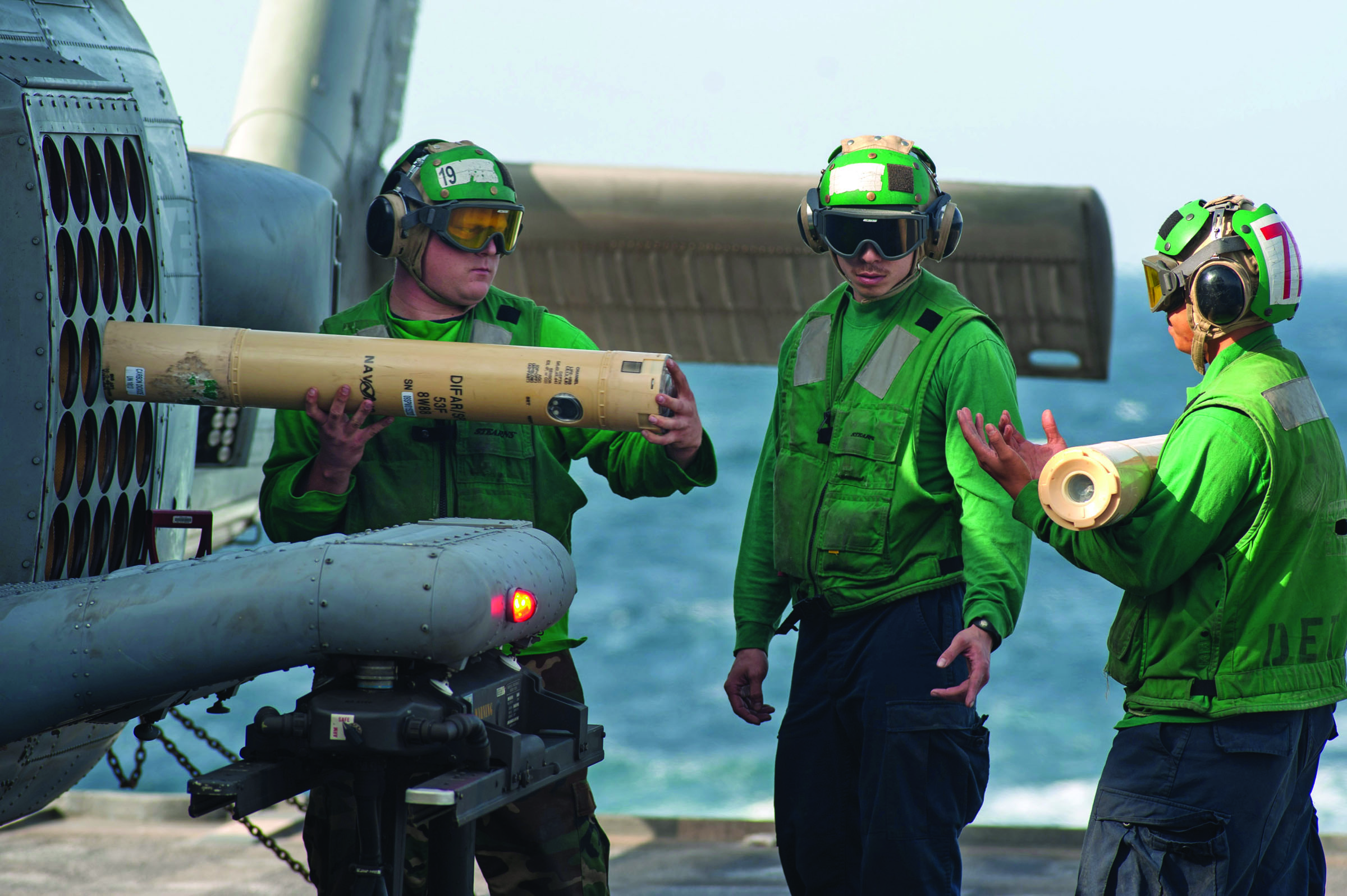By Phuong Le
The Associated Press
EDITOR’S NOTE: This has been corrected to say that the Navy is proposing decreased air-to-surface missile exercises in its plan for expanding sonar testing and other warfare training off the Pacific Coast, including areas of the North Olympic Peninsula.
SEATTLE — The National Marine Fisheries Service said Thursday it has authorized the U.S. Navy’s proposal to expand sonar testing and other warfare training off the Northwest coast.
The agency said it had determined the exercises would not have major impacts on endangered orcas and other marine mammals.
The training zone includes areas off the North Olympic Peninsula’s Pacific Coast — including the Olympic Coast National Marine Sanctuary — off Indian Island and in the Strait of Juan de Fuca.
The Navy said the exercises are needed to ensure its forces are ready for conflicts and noted it has trained for decades in the area without significant effects on the animals.
“We’re not saying that there’s no impact,” said John Mosher, Northwest environmental program manager for the U.S. Pacific Fleet.
“We’re saying that in most circumstances, they don’t rise to the level of significant impacts. Most will be low-level disturbances.”
The fisheries service renewed the Navy’s five-year permit to conduct the activities in areas from the inland waters of Puget Sound to the northern coast of California.
Environmentalists have fought to limit the areas and times when the Navy trains, saying the activities can kill and harass whales and disrupt the ability of marine mammals to forage for food and communicate with one another.
They worry the Navy is increasing training exercises without trying to ease the impacts or restricting activities in areas that are biologically important for the animals.
“The ocean is a big place, and the Navy can find areas that are not really important areas to marine mammals to conduct their exercises,” said Miyoko Sakashita, senior counsel with the Center for Biological Diversity.
The fisheries service, part of the National Oceanic and Atmospheric Administration, agreed with the Navy that no marine mammal deaths were expected from the training activities.
NOAA officials acknowledge thousands of marine mammals could be affected, but they expect mostly short-term behavior changes such as animals curtailing swimming or avoiding a particular location.
“We’re not talking about large-scale, long-term population impacts,” said Jolie Harrison, chief of NOAA’s permits and conservation division.
Sakashita, however, said new studies are finding that sonar is more harmful to marine mammals at lower levels than previously believed.
Federal officials are “not anticipating any mortality, but it’s not a guarantee against mortality,” she said.
Under the permit valid through November 2020, NOAA will require the Navy to make efforts to avoid marine mammals that include establishing safety zones around vessels that use sonar; deploying lookouts who can shut down operations if marine mammals are in the area; and ensuring explosives aren’t detonated when animals are within a certain distance.
In the Pacific Northwest, the Navy wants to deploy up to 720 “sonobuoys” at least 12 nautical miles off the coast. The devices send out underwater sonar signals that are used by air crews training to detect submarines.
The Navy also is proposing 30 bombing exercises a year, as well as decreased air-to-surface missile exercises.
It will finalize its decision on the extent of exercises by the end of this year.
Environmental advocates have fought to limit areas in the Pacific Ocean, including waters off Hawaii and Southern California, where the Navy can train and test sonar.
In September, under a settlement with environmental groups, the Navy agreed to limit certain sonar use and other training in specified areas off Hawaii and California.
The deal came after several groups sued in 2013 to challenge the decision by the fisheries service to allow the training.

